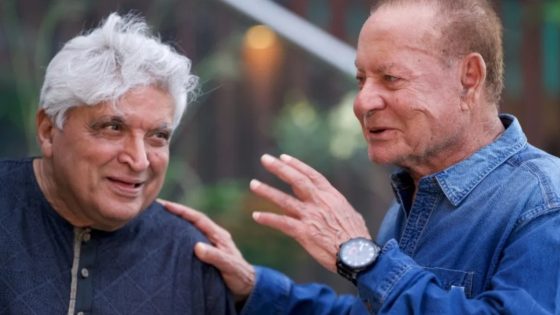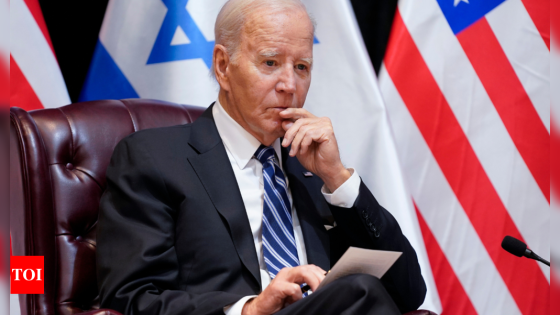You don’t have to be from the 70s or the 80s to understand the phenomena that Salim-Javed was. Anyone who’s grown up watching Hindi cinema, or even with an inkling of love for Bollywood, would know how the duo changed the history of cinema for the Indian audience forever. They created an ‘angry young man’ for the screen, and put the screenwriters at the forefront, like nobody else had done before them. Or could do after them. ‘Angry Young Men’, a documentary miniseries based on the lives and work of Salim Khan and Javed Akhtar, celebrates the same history.
Divided into three episodes of 45 minutes each, it is like a visual biography of the two writers, who were fearless and unabashed in both the way they worked and lived. As the documentary establishes in the first episode itself, none of them were apprehensive of not making it big in the industry when they had decided to try their luck in the movies, in any capacity they could. They were on a mission. To change their lives and their future. At one point in the series, Khan tells the audience how he left a privileged life back in Indore, and never asked for a single penny, even when he had nowhere to live or nothing to eat.
For Akhtar, life was nothing but a film story, and he had already written its climax: where he makes it despite all the odds.
‘Angry Young Men’ appears like a well-made, thoroughly researched and quite organically rendered series. It has people talking on the camera as if they are actually going back into the past, with much honesty and amusement. Even Salim and Javed themselves don’t seem to be holding back. They discuss their individual struggles but never try to hide the fact that they became celebratory once they started working together.
It’s not a full glorification of them and their work. In fact, every time you imagine them as the righteous heroes of their lives, you are told they had their own follies. Like Honey Irani, Akhtar’s ex-wife, showing no petty about the downfall that Salim-Javed saw when ‘Imaan Dharam’ flopped. “It did annoy people that all their pictures were hits. People said, ‘They think there’s Gods!’ And then how they used to provoke people. So naturally, you wouldn’t want… [you’d say] ‘Good, they deserve a flop. That’ll bring them to their senses’. That was bound to happen,” she says while explaining how the duo probably needed to face that low in their careers because of their arrogance and overconfidence.
Even Jaya Bachchan, who starred in many films written by Salim-Javed, defines them as “brats”, among many things.
The series takes you through the highs and lows of the writers’ lives, but never makes you feel you didn’t need to know that information, or you didn’t care about that anecdote. It’s as engaging as any full-blown masala entertainer. Probably because you get two heroes, teaming up together, rising from struggles, getting drunk on their power, facing a slump and rising again – like in any paisa vasool film.
‘Angry Young Men’ makes two things work. First, it lets you know Salim-Javed better, and second, it makes you know them via both their work and their life choices. You are told about their family backgrounds, their two marriages, their parenting styles, and why they wrote what they wrote. In fact, it’s almost joyous to understand how the two writers never cared for socio-political reflection in their stories, and yet the best of their works happened to be a commentary on how the fabric of our nation was changing during those times. “We created a vigilante in our films, through our angry young man, and we were innocent about it,” admitted Akhtar in the series, referring to Amitabh Bachchan’s portrayal of Vijay in movies like ‘Deewar’, ‘Trishul’ and ‘Zanjeer’.
The series treats you with real-life footage of the ‘houseful’ boards running in theatres during the release of ‘Deewar’ and ‘Sholay’. It humbles you by documenting real-life people admitting earning overnight wealth by selling the tickets to these blockbuster hits. As if Salim-Javed didn’t just predict the future of their films, but also used a magic wand to fulfill their own prophecies. ‘Angry Young Men’ helps you immerse yourself in a story that you always knew, but never really knew before. It is also as brazen as the two men it represents.
In the third episode of the series, Akhtar, at 77, quite boldly, takes the blame for his broken marriage with former actor Honey Irani. He tells the audience how she’s probably the only person in life he holds a guilty face for. And at the same time, we see Khan, aged 88, talking affectionately about falling in love with Helen, when he was already married to Salma Khan. The series doesn’t let you judge the two men for their doings and undoings. In fact, it does its best job at humanising two of the biggest superstars of the Hindi cinema, who worked off the camera, but were always bigger than those working in the front.
The series talks at length about the fallout of Salim-Javed, but never makes it controversial for the eye. It lets them address it in the most respectful manner. Of course, it helps when the likes of Salman Khan, Amitabh Bachchan, Farhan Akhtar and Karan Johar speak on the issue, but nothing, not even the fallout, ever takes away from the legacy that Salim-Javed stands for. At the end of it, you see Khan talking about living a “content” life with “no regrets” and “no guilt”. That’s where it all sums up.
‘Angry Young Men’ makes you enjoy their stories without any regrets or questions. It is like watching a good cinema that probably doesn’t have any message, but has a lot to ponder upon, and definitely has a lot to entertain.
4 out 5 stars to ‘Angry Young Men’
Source Agencies




